by Lisa Cooke | Jun 3, 2014 | 01 What's New, Beginner, Family History Podcast, Libraries, Research Skills
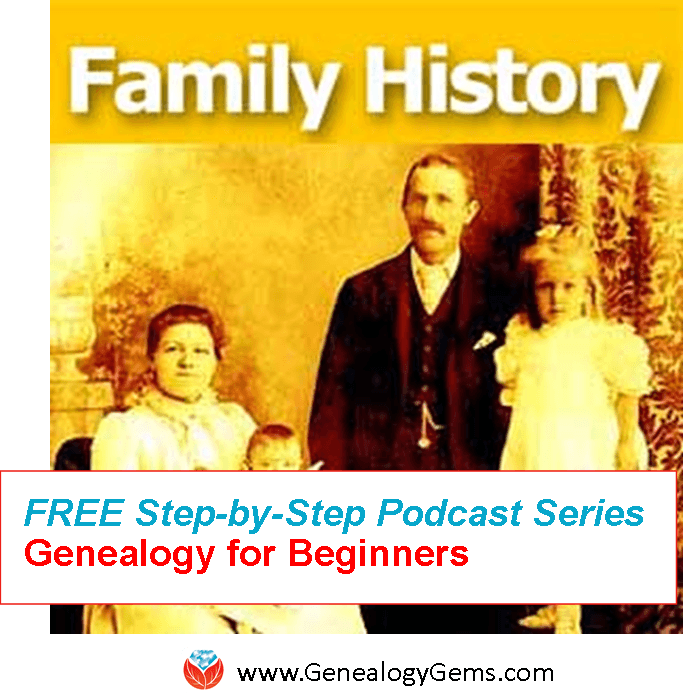
Listen to the Family History: Genealogy Made Easy podcast by Lisa Louise Cooke. It’s a great series for learning the research ropes and well as refreshing your skills.
Family History: Genealogy Made Easy with Lisa Louise Cooke
Republished June 3, 2014
[display_podcast]
Download the Show Notes for this Episode
Welcome to this step-by-step series for beginning genealogists—and more experienced ones who want to brush up or learn something new. I first ran this series in 2008-09. So many people have asked about it, I’m bringing it back in weekly segments.
Episode 34: Do Your Genealogy at the Public Library, Part 1
Did you know there is a gem of a genealogical resource right in your own backyard? Well, at least in your own neighborhood—and also in just about every neighborhood where your ancestors lived. The public library is one of the most underestimated sources of genealogical information around! It’s free. It has better hours than most government-run agencies. There are staff with research skills, knowledge of their locale and knowledge about their collections. I have invited Patricia Van Skaik, Manager of the History and Genealogy Department of the Public Library of Cincinnati and Hamilton County to join us here on the podcast. In this episode she’s going to give us the inside scoop on the unique genealogical resources that are tucked away in public libraries just waiting to be discovered.
What’s at the library? Each library has unique materials for its locale. Examples include:
- City directories
- Maps
- Obituary indexes
- Partnerships with local societies and clubs, and organizations (access to databases)
- Unique library expertise
TIP: Check with the public libraries in each location where your ancestors lived TIP: Genealogy holdings vary, and often have to do with what local constituents want.
TIP: Get involved and make requests at your local library if you want more genealogy resources.
How to prepare for your visit
- Determine your questions ahead of time and gather the appropriate ancestor information to take with you.
- See if they have a genealogy area on the website. There are lots of things on the library website that are not in the catalogue (special exhibits, digitized images, and databases) Don’t just jump straight to the catalogue.
Search the online catalog and identify the books and resources you want
- Look for the geographic area, not the person’s surname (town, county, geographical area)
- Use the Advanced search – “you don’t have to be an advanced researcher to use the advanced search!”
- Don’t use the word “genealogy” in your search. It’s pretty useless.
4 more tips from Lisa and Patricia
Email in advance – ask some questions ahead of time:
- Is the website up to date?
- Reconfirm hours of operation
- Parking?
- What’s the best time to come for more service?
- Is wi-fi available?
- Do you need change for copy machines?
- Are there any special collections you should know about?
- Do they offer orientations?
Plan a group visit: Some libraries will make special accommodations for a group visit. Ask if they will provide a tour geared to genealogy. And they may have a meeting room where you can have lunch or meet. It’s a small investment in time and money to make sure that you’re going to get the most of the time you’re going to spend there.
Get their expertise! Librarians don’t just know the collection, but they also know research strategy, collection contents, all the questions that have come before, and local area resources.
Phrase your questions for success: Pose questions in terms of a query. For example: “I’m trying to find evidence of someone’s death during this time frame. What materials do you have that may help?” (Don’t just ask specifically for obituaries or government death records—they may not have one but they may have other resources you’re not thinking of.)
Tune in next week to Episode 35 to learn more about researching at the public library, like tips for advance searching those online card catalogs, thinking like a librarian, unique collections at librarians and the types of questions you can ask your public library staff.
by Lisa Cooke | May 23, 2014 | 01 What's New, MyHeritage
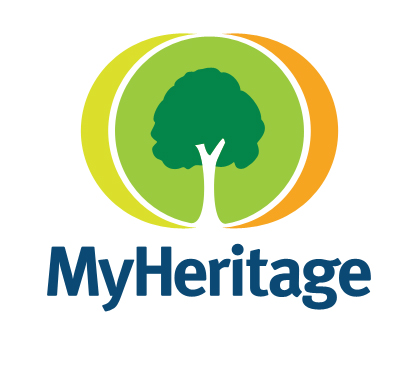 MyHeritage has signed on to sponsor The Genealogy Gems Podcast! Their support helps us to continue to bring you free multimedia content to inspire and inform your genealogy journey.
MyHeritage has signed on to sponsor The Genealogy Gems Podcast! Their support helps us to continue to bring you free multimedia content to inspire and inform your genealogy journey.
Our editorial team has spent several months getting to know MyHeritage.com. We think you’ll love their…
International membership. MyHeritage serves over 70 million members worldwide in 40 languages. Did your English-speaking ancestors originate in the British Isles? Are you discovering Sephardic roots in Spain? MyHeritage members may be your cousins—or know something about them. Check out their world membership map here.
24/7 record searching technology. MyHeritage uses a unique and powerful search system called Record Matches to constantly cull 5 billion historical records for your family. It’s the only family history interface out there using semantic analysis to search newspaper articles, books, and other free-text documents. It is also the first to translate names between languages. I personally like that matches from MyHeritage’s historical newspaper collections show up toward the top. It’s a great way to find obituaries!
Millions of trees. MyHeritage can search over 1.5 billion records in their own 27 million trees and recently-acquired Geni.com’s unified tree. From a single screen, members can search all those trees plus WikiTree and other trees. But you don’t even have to search. MyHeritage’s unique Smart Matching technology intelligently matches each family tree to hundreds of millions of profiles in other family trees. Members are alerted when new matches appear on the site.
Offline software companion. Family Tree Builder 7.0 is free software that allows you to keep a master copy of your family tree offline. Read my blog post on that topic here.
Great app. The MyHeritage app for iPhone, iPad and Android 2.2 helps you research, record and share your family history on the go. You can browse records, photo-share, and show off your tree in its beautiful display.
Genealogy Gems will continue to bring you news and gems on a wide range of genealogy topics and companies, not just MyHeritage. But we do encourage you to get to know MyHeritage.com. We choose our advertisers carefully and are very proud to partner with them!
by Lisa Cooke | May 3, 2014 | 01 What's New, Brick Wall, Google, Inspiration
Cold Case files are as common in genealogy as they are in criminal investigations. So it seemed a no brainer to me that family historians could 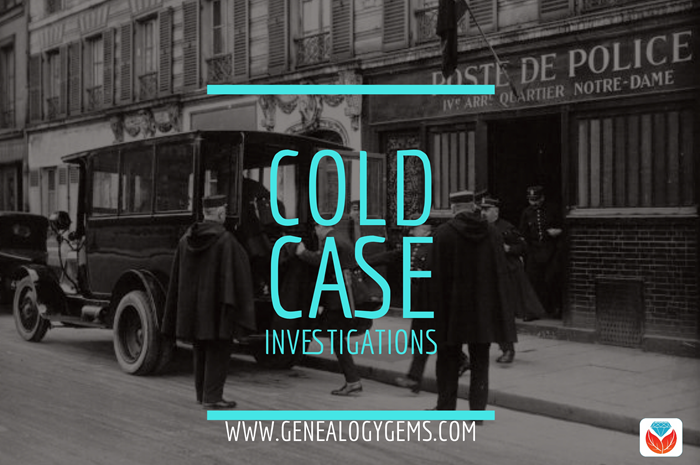 incorporate some of the same techniques that cold case investigators use. And that is how my presentation How to Reopen and Work a Genealogical Cold Case was born.
incorporate some of the same techniques that cold case investigators use. And that is how my presentation How to Reopen and Work a Genealogical Cold Case was born.
I recently brought this exciting hour to the folks at the Williamson County Texas Genealogical Society and they embraced it with open arms. Eyes were lighting up, and there was excitement in the air at the prospect of pulling some of those dusty old brick walls off their genealogical office shelves. I warned the group that they would be blaming for a sleepless night that night as they burned the midnight oil putting the tips to work. And as always, I encourage them to let me in on their successes by dropping me an email. I never cease to be amazed at what my wonderful audiences accomplishes!
An email from Teresa Hankins of Round Rock, TX landed in my inbox the very next morning, and her message was inspiring:
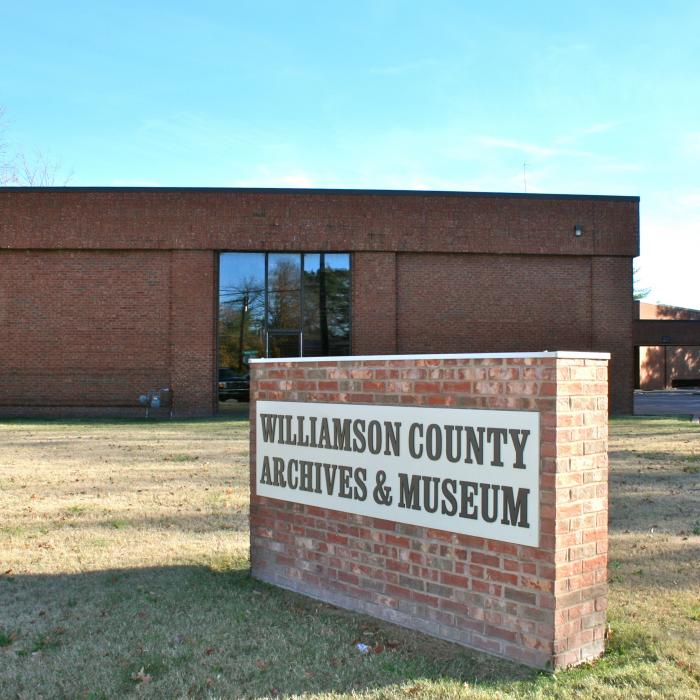 “I attended your lecture on Genealogical Cold Cases at the Williamson County Genealogical Society’s meeting just last night. It was late when I got home, but I wanted to check out some of your suggestions on cracking hard cases. I was particularly interested in Google Books, as I had just recently discovered it, but hadn’t used it much.
“I attended your lecture on Genealogical Cold Cases at the Williamson County Genealogical Society’s meeting just last night. It was late when I got home, but I wanted to check out some of your suggestions on cracking hard cases. I was particularly interested in Google Books, as I had just recently discovered it, but hadn’t used it much.
The Case: My 2nd great-grandfather, Joshua, was too young to serve in American Civil War, but he had nine brothers who did serve. These brothers are what first prompted my interest in genealogy, and I’ve spent untold hours reconstructing their movements and histories.
One of the most poignant stories is that of David, the youngest of the nine. He couldn’t have been more than 17 years old when he joined the Union regiment. He was wounded at the Battle of Lone Jack, discharged, and then married Margaret, a young lady from a neighboring farm. They had one child, named Thomas, and then David was murdered by bushwhackers. His young bride remarried and had two more children before she, too, passed away at a young age. My unsolvable case was with Thomas, son of David and Margaret, who seemed to vanish from history. He lost his father when he was an infant, his mother when he was about 12, and I wanted to know what happened to him!
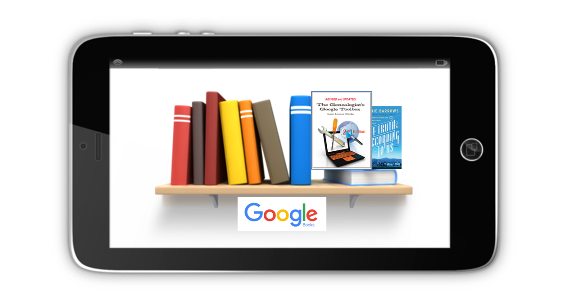 Like all good genealogists, I was only going to research a little before going to bed. I wanted to play around on Google Books and see how the searches worked. I typed in a few key words that were unsuccessful before settling on a group of books based on Benton County, Missouri, which is where most of my ancestors in this line resided. I was just clicking on a book and searching for the surname, not looking for anything in particular. I only wanted to see what would come up and how the search engine worked. The next thing I know, I am looking at a record from the Supreme Court of Missouri, regarding some sort of land dispute. There are all the names involved, Thomas, his two half siblings, another family that I know are neighbors and relatives! I now know the month and year that Thomas died. I know that he sold some land one of his uncles. He was living there among family and friends, and though he, too, died young, at least I know what happened! This has opened up a cold case, and now it is on fire with new leads. I can’t wait to see what else I can dig up on Google Books!
Like all good genealogists, I was only going to research a little before going to bed. I wanted to play around on Google Books and see how the searches worked. I typed in a few key words that were unsuccessful before settling on a group of books based on Benton County, Missouri, which is where most of my ancestors in this line resided. I was just clicking on a book and searching for the surname, not looking for anything in particular. I only wanted to see what would come up and how the search engine worked. The next thing I know, I am looking at a record from the Supreme Court of Missouri, regarding some sort of land dispute. There are all the names involved, Thomas, his two half siblings, another family that I know are neighbors and relatives! I now know the month and year that Thomas died. I know that he sold some land one of his uncles. He was living there among family and friends, and though he, too, died young, at least I know what happened! This has opened up a cold case, and now it is on fire with new leads. I can’t wait to see what else I can dig up on Google Books!
Thank you for all the useful information you shared. I learned so much. I can’t wait to try out your other suggestions. You said to send you an email if we cracked a cold case, and that is what I’m doing. Have a blessed day!”
Well, I feel blessed every time I hear from my fabulous students / listeners / readers! I’m a lucky girl!
And I received one more blessing in Round Rock: At long last I finally got to meet my cousin Carolyn. You “met” Carolyn on the free Family History: Genealogy Made Easy podcast episodes about contacting living relatives (see below for links.) Carolyn and I have been collaborating online for nearly ten years on our family history (her mother is my Grandmother’s sister) but we never had the opportunity to meet in person until now. She’s as sweet and warm as she is on the phone – it’s not wonder she has such great success reaching out to family relations.
It’s wonderful to hear from folks about how they have benefited from something I’ve shared, but I could write volumes on the blessings I’ve received in this job that I love.
Heritage Quilts Video with Carolyn: featuring a quilt in our family. Each block features one of our female ancestors.
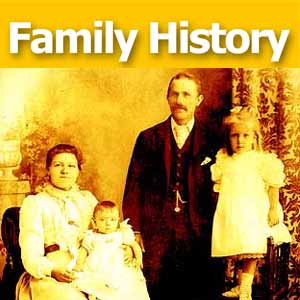 Episode 14: How to Contact Long-Lost Relatives
Episode 14: How to Contact Long-Lost Relatives
Connecting with someone who knows about our ancestors can really boost our research results—and even create new relationships among living kin. But it’s not always easy to send that first email or make that first call. In this episode, we chat with my cousin, Carolyn Ender, who has mastered the art of “genealogical cold calling” by conducting hundreds of telephone interviews. She has a knack for quickly connecting with folks she doesn’t know over the telephone in ways that put them at ease and bring to light the information that she’s looking for.
Episode 15: More Tips for Contacting Distant Relatives
In this episode we talk more about “genealogical cold calling” with my cousin, Carolyn Ender, who has conducted hundreds of telephone interviews. Relationships are key to genealogical success and by following 14 genealogical cold calling strategies you will find your research relationships multiplying.

A one hour video of Lisa’s class on Genealogical Cold Cases is part of Genealogy Gems Premium Membership. Click here to become a Member.
by Lisa Cooke | May 1, 2014 | 01 What's New, Book Club, Mac
7 eBook Readers for the Mac
eBook Readers for the Mac may look the same, but there are a few things to consider to ensure you’ve picked the right one for your needs. With so many  genealogical materials and great books becoming available digitally you’ll want to be armed with a quick checklist you can use to determine the right eReader for you.
genealogical materials and great books becoming available digitally you’ll want to be armed with a quick checklist you can use to determine the right eReader for you.
MakeUseOf.com recently published such a checklist. The author reminds us that “Sure, tablets and e-ink devices are better ways to read than your computer – and even your phone is nicer than a laptop if you’re on the couch. But sometimes you need to open a book on your Mac.”
1 Awesome Source of free eBooks
Here’s one reason why you would want an eReader on your Mac: Project Gutenberg. This intriguing site offers over 45,000 free ebooks. You can choose from offerings like free epub and Kindle books as well as download them or read them online. And if that’s not enough, over 100,000 free ebooks are available through their Partners, Affiliates and Resources.
And these are high quality ebooks. According to the website “All our ebooks were previously published by bona fide publishers. We digitized and diligently proofread them with the help of thousands of volunteers.”
No fee or registration is required but you can help by donating, digitizing more books, recording audio books, or reporting errors.

Click here to read the article. And remember, an eReader might just help you reclaim some very precious shelf space!



 incorporate some of the same techniques that cold case investigators use. And that is how my presentation
incorporate some of the same techniques that cold case investigators use. And that is how my presentation  “I attended your lecture on Genealogical Cold Cases at the Williamson County Genealogical Society’s meeting just last night. It was late when I got home, but I wanted to check out some of your suggestions on cracking hard cases. I was particularly interested in Google Books, as I had just recently discovered it, but hadn’t used it much.
“I attended your lecture on Genealogical Cold Cases at the Williamson County Genealogical Society’s meeting just last night. It was late when I got home, but I wanted to check out some of your suggestions on cracking hard cases. I was particularly interested in Google Books, as I had just recently discovered it, but hadn’t used it much. Like all good genealogists, I was only going to research a little before going to bed. I wanted to play around on Google Books and see how the searches worked. I typed in a few key words that were unsuccessful before settling on a group of books based on Benton County, Missouri, which is where most of my ancestors in this line resided. I was just clicking on a book and searching for the surname, not looking for anything in particular. I only wanted to see what would come up and how the search engine worked. The next thing I know, I am looking at a record from the Supreme Court of Missouri, regarding some sort of land dispute. There are all the names involved, Thomas, his two half siblings, another family that I know are neighbors and relatives! I now know the month and year that Thomas died. I know that he sold some land one of his uncles. He was living there among family and friends, and though he, too, died young, at least I know what happened!
Like all good genealogists, I was only going to research a little before going to bed. I wanted to play around on Google Books and see how the searches worked. I typed in a few key words that were unsuccessful before settling on a group of books based on Benton County, Missouri, which is where most of my ancestors in this line resided. I was just clicking on a book and searching for the surname, not looking for anything in particular. I only wanted to see what would come up and how the search engine worked. The next thing I know, I am looking at a record from the Supreme Court of Missouri, regarding some sort of land dispute. There are all the names involved, Thomas, his two half siblings, another family that I know are neighbors and relatives! I now know the month and year that Thomas died. I know that he sold some land one of his uncles. He was living there among family and friends, and though he, too, died young, at least I know what happened! 





